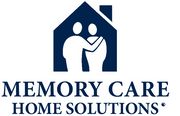
A diagnosis of dementia, including Alzheimer’s, is challenging in large part due to the uncertainty that it creates. While every patient is different, and the disease progression varies from person to person, most people experience three defined stages marked by specific symptoms and behaviors. Understanding these phases can help you be better prepared to provide care and identify when additional interventions may be needed.
Early Stage Dementia
As you might expect, early stage dementia is the mildest of the three phases, during which many people are still able to live independently. Many can safely drive, socialize, and continue with normal activities. However, during this stage, individuals begin to experience memory lapses.
Additionally, they’ll struggle to remember common words, details, or the location of frequently used items. You might also notice that your loved one will begin showing poor judgment or making decisions that are out of character.
Mid-Stage Dementia
 The middle stage of dementia tends to be the longest, and is marked by a steady decline in memory and the ability to participate in normal activities. It’s during this stage that your loved one will begin needing more care, as they might struggle to remember significant details or how to complete simple tasks.
The middle stage of dementia tends to be the longest, and is marked by a steady decline in memory and the ability to participate in normal activities. It’s during this stage that your loved one will begin needing more care, as they might struggle to remember significant details or how to complete simple tasks.
Personality and behavioral changes are common during this stage. Your loved one may experience sleep disturbances and sudden mood swings. They may also withdraw from social interactions, or begin displaying compulsive or challenging behaviors, including paranoia.
Late Stage Dementia
People in the final stages of dementia are considered to be in the late stage, which most need 24/7 care. At this stage, your loved one may lose the ability to communicate, and progressively lose physical abilities like walking. In late stage dementia, memory and cognitive skills decline considerably, and you’ll likely notice a significant change in personality – including a complete loss of personality. People in this stage are more susceptible to infections, especially pneumonia, and have little to no awareness of their surroundings.
If you’re caring for a loved one in any stage of dementia, support and resources are available to help you manage all aspects of this important job. Based in St. Louis, MO, Memory Care Home Solutions has a compassionate team of experts on staff and offers free training, support, and consultations to families living with dementia across Eastern Missouri. Call (314) 645-6247 to connect with a friendly member of their staff. Visit their website to learn more about their comprehensive services.
About the Business
Have a question? Ask the experts!
Send your question

